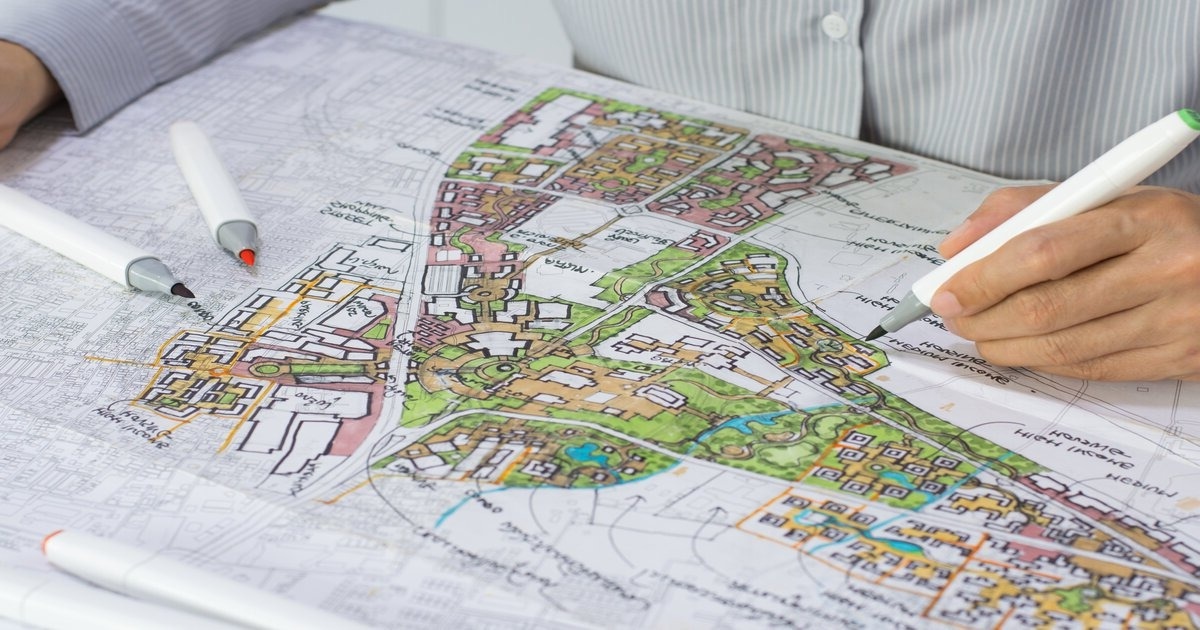
Urban planning shapes the spaces where people live, work, and play. But what exactly is it? Urban planning is the process of designing and regulating the use of land and resources in urban areas to create sustainable, functional, and aesthetically pleasing environments. This involves balancing the needs of residents, businesses, and the environment. From zoning laws to public transportation systems, urban planning touches every aspect of city life. It aims to improve quality of life by ensuring access to essential services, reducing traffic congestion, and promoting green spaces. Planners consider factors like population growth, economic development, and environmental impact. With cities growing rapidly, urban planning is more important than ever. Understanding its role helps us appreciate the complexity behind the cities we call home. Let's explore some fascinating facts about this vital field!
What is Urban Planning?
Urban planning is like a giant puzzle. It involves designing and organizing cities and towns to make them better places to live. Planners think about how to use land, where to put roads, parks, and buildings, and how to make everything work together smoothly. Let's dive into some fascinating facts about urban planning.
-
Ancient Roots: Urban planning isn't new. Ancient civilizations like the Indus Valley and Mesopotamia had planned cities with streets laid out in grids. They even had drainage systems!
-
Garden Cities: In the early 1900s, Ebenezer Howard introduced the concept of "Garden Cities." These were self-contained communities surrounded by greenbelts, combining the best of city and country living.
-
Zoning Laws: Zoning laws help decide what can be built where. They separate areas for homes, businesses, and factories, ensuring that a factory isn't built next to a school.
-
Smart Growth: This approach focuses on sustainable development. It encourages building up, not out, to reduce urban sprawl and protect natural areas.
-
Public Transportation: Effective urban planning includes public transportation systems like buses, trains, and subways. These systems reduce traffic congestion and pollution.
Why is Urban Planning Important?
Urban planning shapes the places we live, work, and play. It affects our daily lives in ways we might not even realize. Here are some reasons why urban planning is crucial.
-
Quality of Life: Good urban planning improves quality of life by creating safe, healthy, and enjoyable environments.
-
Economic Growth: Well-planned cities attract businesses and tourists, boosting the economy.
-
Environmental Protection: Planners work to protect natural resources and reduce pollution, making cities more sustainable.
-
Social Equity: Urban planning can promote social equity by ensuring everyone has access to essential services like schools, hospitals, and parks.
-
Disaster Preparedness: Planning helps cities prepare for natural disasters by designing resilient infrastructure and evacuation routes.
How Do Urban Planners Work?
Urban planners have a challenging job. They must balance many factors to create functional and beautiful cities. Here's how they do it.
-
Community Involvement: Planners often involve the community in decision-making to ensure the city's development meets residents' needs.
-
Data Analysis: Planners use data to understand trends and make informed decisions about land use and transportation.
-
Collaboration: Urban planners work with architects, engineers, and government officials to bring their plans to life.
-
Technology: Tools like Geographic Information Systems (GIS) help planners visualize data and create detailed maps.
-
Policy Making: Planners help create policies that guide development and ensure sustainable growth.
Challenges in Urban Planning
Urban planning isn't without its challenges. Planners must navigate various obstacles to create thriving cities.
-
Urban Sprawl: As cities grow, they can spread out too much, leading to traffic congestion and loss of green spaces.
-
Affordable Housing: Providing affordable housing is a significant challenge, especially in rapidly growing cities.
-
Climate Change: Planners must consider climate change impacts, such as rising sea levels and extreme weather events.
-
Infrastructure Aging: Many cities have aging infrastructure that needs updating or replacing, which can be costly.
-
Balancing Interests: Planners must balance the interests of residents, businesses, and government, which can be tricky.
Innovations in Urban Planning
Urban planning is constantly evolving. New ideas and technologies are shaping the future of cities.
-
Green Buildings: Eco-friendly buildings use less energy and water, reducing their environmental impact.
-
Smart Cities: Technology is transforming cities into "smart cities," where data is used to improve services and infrastructure.
Urban Planning: Shaping Our Future
Urban planning is more than just designing cities; it's about creating spaces where people thrive. Sustainable development is at the heart of modern planning, ensuring cities grow without harming the environment. Planners focus on public transportation, green spaces, and affordable housing to improve quality of life. They also tackle challenges like traffic congestion and pollution by promoting walkability and bike-friendly routes.
Technology plays a big role too, with smart cities using data to enhance services and infrastructure. Community involvement is key, as planners work with residents to understand their needs and visions. This collaboration leads to more inclusive and vibrant urban areas. As cities continue to expand, urban planning remains crucial in balancing growth with sustainability. By prioritizing innovation and community engagement, planners help shape a future where cities are not just livable, but also enjoyable for everyone.
Was this page helpful?
Our commitment to delivering trustworthy and engaging content is at the heart of what we do. Each fact on our site is contributed by real users like you, bringing a wealth of diverse insights and information. To ensure the highest standards of accuracy and reliability, our dedicated editors meticulously review each submission. This process guarantees that the facts we share are not only fascinating but also credible. Trust in our commitment to quality and authenticity as you explore and learn with us.


